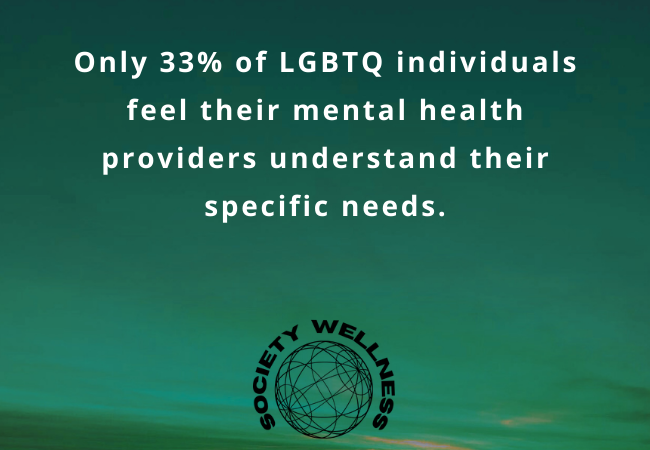For LGBTQ individuals navigating mental health challenges, the search for the right therapist often begins with a crucial question: “Will they understand me?” The truth is, many LGBTQ clients have experienced invalidation, misgendering, or outright discrimination in therapeutic settings that weren’t designed with them in mind. That’s why the presence and work of queer therapists are so vital.
A queer therapist does more than provide professional counseling—they offer a space of understanding, safety, and celebration of LGBTQ identities. They are often either part of the LGBTQ community themselves or are highly trained in culturally competent, affirming mental health care.
At LGBTQ Behavioral Health Treatment Center Massachusetts, we offer affirming services such as LGBTQ Therapy in Massachusetts, LGBTQ Queer Therapy in Massachusetts, LGBTQ Couples and Marriage Counseling in Massachusetts, and structured care options including LGBTQ PHP Treatment and LGBTQ Intensive Outpatient Program in Massachusetts. Our mission is to meet LGBTQ individuals where they are—with care that recognizes, respects, and reinforces their identity.
This comprehensive guide explores what a queer therapist is, how their approach differs from others, and why their role is essential in supporting LGBTQ mental health.
What Is a Queer Therapist?
A queer therapist is a licensed mental health professional—such as a psychologist, clinical social worker, counselor, or marriage and family therapist—who offers LGBTQ-affirming therapy. This means they:
- Are either members of the LGBTQ community themselves or trained in working with queer clients
- Understand the impact of societal oppression, identity-based trauma, and minority stress
- Use affirming language and create safe, inclusive spaces
- Validate gender and sexual diversity without hesitation or judgment
More than an Ally—An Advocate in Practice
A queer therapist goes beyond surface-level inclusion. They bring real-life knowledge, cultural humility, and emotional insight into LGBTQ experiences—whether it’s related to coming out, gender transition, dating, family estrangement, or navigating healthcare systems that have traditionally failed queer people.
Why Identity Matters in Therapy
While some therapists are supportive of LGBTQ clients, they may still lack the training or insight to fully understand the deep-rooted complexities that shape queer mental health.
Consider these experiences:
- A gay teen afraid to come out to their religious family
- A transgender woman misgendered by her previous therapist
- A nonbinary adult navigating dysphoria in a heteronormative workplace
- A lesbian couple seeking a therapist who validates their parenting journey
These are not uncommon stories. In fact, many LGBTQ clients have had to educate their therapists about queer identity, which adds emotional labor to an already vulnerable process.
A queer therapist eliminates this burden. They bring lived experience and/or cultural fluency into each session—so clients can focus on healing, not explaining.
Key Differences: Queer Therapists vs. General Therapists
| Queer Therapist | General Therapist |
|---|---|
| Centers LGBTQ+ identity as integral to well-being | May treat identity as a side issue |
| Fluent in LGBTQ+ terminology, history, and culture | May be unfamiliar with gender-neutral pronouns or nonbinary identities |
| Trained to address internalized stigma and minority stress | May lack experience in these areas |
| Trauma-informed and aware of queer-specific trauma (e.g., misgendering, conversion therapy) | May unknowingly re-traumatize LGBTQ clients |
| Understands queer relationship models and dynamics | May impose heteronormative values |
| Creates an explicitly safe space for all gender and sexual expressions | May unintentionally invalidate identity through language or assumptions |
The Impact of Queer-Affirming Therapy on LGBTQ Mental Health
Queer therapists don’t just validate identity—they help clients heal from wounds society has inflicted because of their identity.
Mental health challenges disproportionately affecting LGBTQ individuals include:
- Anxiety and depression
- Gender dysphoria
- PTSD and complex trauma
- Substance use disorders
- Eating disorders and body image issues
- Self-harm and suicidal ideation
According to The Trevor Project (2023):
- 45% of LGBTQ youth seriously considered suicide in the past year
- 60% report symptoms of depression
- 50% experience anxiety, exacerbated by political and social stigma
These issues require a therapist who understands not only clinical interventions—but the cultural and emotional context behind the pain.
How Queer Therapists Support Their Clients
1. Exploring and Affirming Identity
Whether you’re questioning, transitioning, or reclaiming an identity you were once shamed for, queer therapy provides a safe space to:
- Explore pronouns, labels, and language that fit your truth
- Validate fluid or evolving identities
- Celebrate authenticity
You’re not expected to “have it all figured out.” Therapy is the place where figuring it out is the work.
2. Addressing Internalized Homophobia and Transphobia
Years of hearing “you’re wrong,” “you’re sinful,” or “you’ll grow out of it” can internalize deeply. Queer therapists:
- Help deconstruct harmful beliefs
- Rebuild confidence and self-worth
- Foster pride and resilience
Healing doesn’t mean erasing the past—it means understanding how to move forward without letting shame drive the narrative.
3. Processing Identity-Based Trauma
This might include:
- Misgendering or deadnaming
- Rejection by family, faith community, or friends
- Sexual violence or hate crimes
- Experiences with conversion therapy
Queer therapists use trauma-informed modalities such as EMDR, DBT, and somatic therapy to help clients process pain and reclaim power.
4. Supporting Transition
For transgender and nonbinary clients, queer therapy can provide:
- Exploration of gender identity and expression
- Guidance through social or medical transitions
- Emotional support during HRT or surgery
- Help navigating dysphoria or discrimination
Therapists may also write referral letters for medical care (when requested) and connect clients to trans-affirming resources in the community.
The Role of Queer Therapy in Structured Mental Health Programs
At LGBTQ Behavioral Health, we integrate queer-affirming therapy into every level of care—not just individual sessions. This includes our intensive clinical programs:
LGBTQ PHP Treatment in Massachusetts
Our Partial Hospitalization Program (PHP) offers daily therapeutic care for clients experiencing:
- Acute depression or anxiety
- Identity-related crises or suicidal ideation
- Recent trauma or emotional dysregulation
PHP includes:
- Daily LGBTQ-centered group therapy
- Individual sessions with queer therapists
- Medication management and psychiatric support
- Peer validation and emotional safety
Clients return home each night, making it a bridge between full hospitalization and outpatient care.
LGBTQ Intensive Outpatient Program in Massachusetts (IOP)
Our IOP provides structured, part-time support for LGBTQ individuals balancing therapy with life commitments.
IOP is ideal for:
- Managing ongoing symptoms of anxiety or dysphoria
- Transitioning out of a crisis or higher-level care
- Deepening emotional insight and identity integration
Therapy sessions focus on:
- Emotion regulation
- Boundary setting
- Coping with minority stress
- Building confidence and community

Queer Therapists in LGBTQ Couples and Marriage Counseling
Traditional couples therapy can fall short for LGBTQ relationships, especially when therapists:
- Assume gender roles
- Misunderstand polyamory or open relationships
- Impose heteronormative dynamics
Our LGBTQ Couples and Marriage Counseling in Massachusetts is led by queer-affirming therapists who:
- Support communication around identity transitions
- Help couples navigate stigma or external pressure
- Validate diverse relationship structures
- Rebuild intimacy and trust
Whether you’re married, dating, exploring open models, or co-parenting, we’re here to support your relationship with compassion and competence.
What to Expect in a Session with a Queer Therapist
The space will feel different. Clients report:
- “I don’t have to explain myself constantly.”
- “I can talk about my partner without fear.”
- “I cried when someone finally used the right pronouns.”
You can expect:
- Respect for your identity, name, and pronouns
- Exploration of how your identity intersects with mental health
- Conversations around gender, sex, relationships, and trauma—without shame
- Therapy that uplifts, educates, and empowers
Why LGBTQ Behavioral Health Treatment Center Massachusetts?
We are more than a therapy provider. We are a community. We are a safe space. We are a team of clinicians, many of whom are LGBTQ-identifying, trained to deliver care that is culturally informed, inclusive, and deeply healing.
We offer:
- One-on-one queer therapy sessions
- LGBTQ mental health assessments and crisis support
- Couples and family therapy
- Trauma-informed care with an LGBTQ lens
- Structured programs (PHP and IOP)
- Coordination with gender-affirming medical providers
Whether you’re seeking care for yourself or someone you love, you’ll find belonging here.
Conclusion
No one should have to educate their therapist just to be understood. Whether you’re coming out, exploring your identity, coping with trauma, or just need someone who gets it—we’re here for you.
If you’ve ever felt unseen, misgendered, or misunderstood in therapy, know that you are not alone—and that better care is possible. At LGBTQ Behavioral Health Treatment Center Massachusetts, we’re ready to walk alongside you. Call us today at 888.964.8116 Let’s match you with a queer-affirming therapist or help you explore one of our structured programs designed to support your journey.
FAQ on What Makes a Queer Therapist Different
What is a queer therapist?
A queer therapist is a licensed mental health professional who identifies as LGBTQ+ or is trained in LGBTQ-affirming care. They offer culturally competent therapy that centers queer identities and experiences.
How are queer therapists different from other therapists?
Queer therapists are trained to understand minority stress, use inclusive language, validate LGBTQ identities, and treat identity-based trauma without judgment or assumption.
Why is LGBTQ-affirming therapy important?
Affirming therapy helps LGBTQ clients feel seen, reduces mental health risks like depression and anxiety, and provides safe, empowering spaces for healing and identity exploration.
Do queer therapists only work with LGBTQ clients?
No. While they specialize in LGBTQ issues, queer therapists can support all clients. However, their approach is especially impactful for those within the LGBTQ community.
Can a queer therapist help with gender transition support?
Absolutely. They can assist with social or medical transition, provide emotional support, write referral letters if needed, and help navigate gender dysphoria or identity-related stress.
What should I expect in queer-affirming couples therapy?
Expect open dialogue about gender, sexuality, and relationship dynamics. Queer therapists support all relationship structures and help couples navigate transitions, communication, and intimacy.
Are queer therapists part of the PHP and IOP programs?
Yes. At LGBTQ Behavioral Health, all levels of care—including PHP and IOP—are led by queer-affirming clinicians trained in trauma-informed, inclusive care.
Is it okay to request a queer-identifying therapist?
Absolutely. It’s valid to want a therapist who shares your lived experience. Our center makes every effort to match clients with clinicians who meet their cultural and emotional needs.

